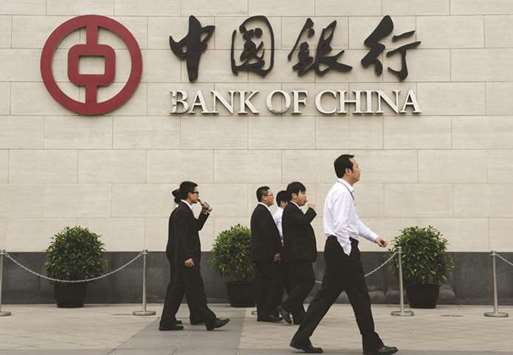Hong Kong’s top banks are hiking an important mortgage rate, piling pressure on borrowers and raising the risk of a slowdown in one of the world’s most expensive property markets.
Home prices in Hong Kong have surged nearly three-fold since 2008, propelled by a supply shortage, cheap financing and big flows of money from Chinese investors.
HSBC Holdings, Bank of China (Hong Kong), Hang Seng Bank and Standard Chartered said late on Wednesday they will raise new mortgage rates from Monday.
Mortgages in Hong Kong are normally either linked to the prime rate, or the benchmark rate Hibor – the Hong Kong interbank offered rate.
Hong Kong’s de facto central bank has raised its base rate twice this year in lockstep with the US Federal Reserve, but the city’s major banks left their prime rates unchanged, as they have ever since 2008 when they slashed them at the height of the global financial crisis.
HSBC, HSBC’s local subsidiary Hang Seng Bank, and Bank of China (Hong Kong) said they would raise their prime rate-linked new mortgage rate by 10 basis points to prime minus 2.75% effective from August 13.
This would mean an effective rate of 2.25%.
They also said that they would raise the cap for Hibor-linked mortgages to their best lending rate minus 2.65%.
Hibor-linked mortgages normally flip to prime-linked mortgages when a rise in Hibor makes prime-linked mortgages cheaper.
Hibor has been trending upwards for the past 12 months.
Standard Chartered said it would also raise its prime rate-linked new mortgage rate to the best lending rate minus 3%.
This is also an effective rate of 2.25%, as Standard Chartered’s best lending rate is 5.25%.
It also said it would raise the cap for Hibor-linked new mortgages to Standard Chartered’s best lending rate minus 2.9%.
The news comes after Citibank raised its mortgage rates on Tuesday, effective immediately.
Hong Kong’s property sub-index was up 0.4% by the midday break, lagging a 0.9% gain for the benchmark Hang Seng Index.
Capital Economics said in a report this week it expects home prices in Hong Kong to fall, ranking the financial hub seventh on a list of places most at risk of a correction.
Hong Kong people held HK$1.258tn (US$163bn) in outstanding mortgage loans with banks as of the end of June, according to the Hong Kong Monetary Authority (HKMA).
The mortgage delinquency ratio remained unchanged at 0.02% at the end of June.
Private home prices in Hong Kong have been on a record-breaking run for 19 consecutive months, fuelling discontent among residents in the financial hub.
A skilled service worker would need to work 20 years to buy a 650-square-foot flat near the city centre, according to UBS.
Reining in the hot property market remains a top priority for the local government, but prices have been rising non-stop since 2016 despite tightening measures.
Hong Kong’s sky-high property valuations are also seen by analysts as a tangible risk as US interest rates trend higher.
The former British colony tracks US rate moves because its currency is pegged to the US dollar.
The Federal Reserve kept interest rates unchanged last week, but is expected to raise rate twice more this year, which will spur the HKMA to follow suit.

Bank workers walk outside the headquarters of the Bank of China in the Xidan district of Beijing. Hong Kong’s top banks, including the Bank of China, are hiking an important mortgage rate, piling pressure on borrowers and raising the risk of a slowdown in one of the world’s most expensive property markets.
